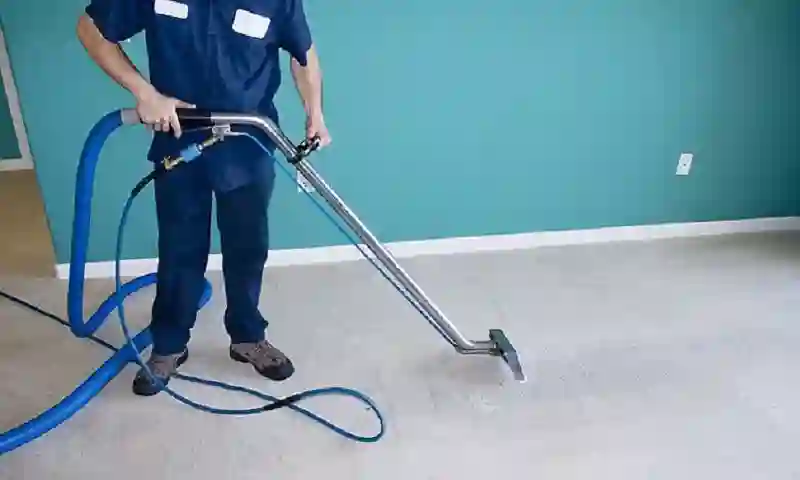Carpet Cleaning for Manufacturing Plants: Clean Floors for Efficiency
- 1156 Views
- Nicholas Éric
- May 3, 2025
- Home Improvement
Manufacturing plants are the heart of industrial production, where complex processes, machinery, and a skilled workforce come together to create products that power our world. These facilities are characterized by their high-paced, demanding environments, with the focus primarily on productivity and efficiency. Yet, in the midst of this bustling world of manufacturing, there’s one often-overlooked element that plays a vital role in maintaining productivity – the factory floor carpet.
Carpeting in manufacturing plants isn’t just about aesthetics; it’s about ensuring a clean and efficient workspace. In this article, we’ll explore the world of carpet cleaning for manufacturing plants and understand why clean floors are essential for maximizing efficiency and safety in these industrial settings.
The Manufacturing Plant: Where Productivity Rules
Manufacturing plants are synonymous with productivity. These facilities are designed for efficiency, precision, and output. From automotive plants producing vehicles to factories churning out consumer goods, manufacturing plants are the backbone of our industrialized society.
In such a high-paced environment, every detail matters. The cleanliness and maintenance of the factory floor are no exception. While the focus may be on machines, processes, and production targets, the condition of the floor beneath our feet can significantly impact efficiency.
The Role of Carpets in Manufacturing Plants
Carpets in manufacturing plants serve multiple functions, all of which contribute to the overall efficiency of the workspace:
- Safety: Manufacturing plants can be hazardous places with heavy machinery, equipment, and materials in constant motion. Clean carpets provide a non-slip surface, reducing the risk of accidents and ensuring the safety of the workforce.
- Noise Control: Industrial plants are often noisy environments with machinery and equipment generating a cacophony of sound. Carpets absorb sound, reducing noise levels and creating a quieter and more comfortable workspace for employees.
- Comfort: Factory workers often spend long hours on their feet, operating machinery or performing tasks that require precision and attention. The softness of carpets underfoot enhances comfort, reducing fatigue and improving productivity.
- Cleanliness: Clean carpets create a hygienic environment, preventing the buildup of dust and debris that can affect the quality of products and machinery.
- Climate Control: Carpets contribute to maintaining a stable indoor climate by trapping moisture and preventing fluctuations in temperature. This is essential for the comfort and well-being of the workforce.
The Connection Between Carpets and Efficiency
While the significance of carpets in manufacturing plants may not be immediately apparent, their condition directly impacts efficiency:
- Safety: Clean carpets reduce the risk of accidents, preventing injuries and downtime caused by workplace mishaps.
- Noise Reduction: Quieter workspaces can improve concentration and communication among employees, reducing errors and enhancing efficiency.
- Comfort: Comfortable employees are more productive and less prone to fatigue, leading to increased efficiency in task completion.
- Cleanliness: Clean carpets prevent dust and debris from contaminating products and machinery, reducing the risk of defects or malfunctions that can halt production.
- Maintenance: Well-maintained carpets have a longer lifespan, reducing the need for frequent replacements and minimizing disruptions to manufacturing operations.
The Importance of Carpet Cleaning in Manufacturing Plants
Given the multifaceted role of carpets in manufacturing plants and their direct impact on efficiency and safety, proper carpet cleaning is essential. Here are some key reasons why carpet cleaning is vital for manufacturing plants:
- Productivity: Clean carpets create a more efficient and comfortable workspace, leading to increased productivity among employees.
- Safety: Clean carpets reduce the risk of accidents, preventing injuries and disruptions in production.
- Product Quality: Preventing the buildup of dust and debris on carpets helps maintain product quality by reducing the risk of contamination.
- Longevity: Regular cleaning and maintenance extend the lifespan of carpets, reducing the need for frequent replacements and minimizing disruptions to manufacturing operations.
Methods of Carpet Cleaning in Manufacturing Plants
To achieve the benefits of clean carpets in manufacturing plants, various methods and techniques are employed:
- Regular Maintenance: Daily vacuuming and spot cleaning are essential to remove surface dirt and debris. High-traffic areas should be vacuumed multiple times a day to prevent the buildup of contaminants.
- Deep Cleaning: Periodic deep cleaning is necessary to maintain the overall condition of the carpets. Methods like hot water extraction (steam cleaning) or dry cleaning may be used, depending on the type of carpet and its maintenance requirements.
- Stain Removal: Prompt and effective stain removal is crucial in manufacturing plants where spills and accidents are common. Professional cleaners are equipped with the knowledge and tools to tackle tough stains and ensure the cleanliness of carpets.
- Post-Event Cleaning: After large-scale production runs or equipment maintenance, thorough cleaning is necessary to address any spills or accidents that occurred during the operation. This ensures that the carpets are in top condition for the next phase of production.
- Professional Cleaning Services: Many manufacturing plants rely on professional carpet cleaning services for deep cleaning and maintenance. These experts have the expertise and equipment to tackle tough stains and ensure the cleanliness and longevity of carpets.
Conclusion
Manufacturing plants are the engines of industry, where efficiency and productivity are paramount. Every detail within these facilities contributes to the success of operations. Carpets, often unnoticed, play a vital role in creating a safe, comfortable, and efficient workspace for employees.
Clean carpets in manufacturing plants contribute to safety, noise reduction, comfort, cleanliness, and overall efficiency. While employees may not consciously notice the carpets beneath their feet, their impact on the efficiency and safety of the workplace is undeniable.
So, the next time you step into a manufacturing plant and see a well-maintained floor, remember that it’s not just about aesthetics. Clean carpets are an integral part of the machinery that keeps operations running smoothly and efficiently. Clean floors – powering efficiency in manufacturing plants around the world.





